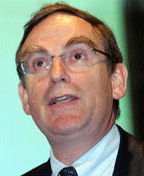

Can you please run down the memory lane and apprise us about major milestones in the textile journey of Kelheim Fibres?
Since the foundation of our plant in the 1930s, German textile industry experienced a serious change. And so did Kelheim Fibres. The most important decisions were probably made during the 1990s: extension of our portfolio in order to serve other industrial sector (Nonwovens) and a strong focus on specialities (Viloft, Tow, Spundyed)
Which all countries are your clientele? What are end uses of your products? Can you support this with Kelheim’s sector wise market shares?
- We serve the global market. We have customers in more than 40 countries.
- 60% Nonwovens – 40% Textile - Overall: more than 60% SpecialitiesRecently, your company has joined hands with Lenzing for your product “Dolan”. Can you provide us more information about this agreement?
As of 31 December 2007 Dolan GmbH, a producer of specialty fibers based in Kelheim (Germany), became a full subsidiary of Lenzing Plastics. The acquired company generated sales of about EUR 25 million (2007) and employs a staff of about 100.
Dolan produces a range of applications based on acrylic fibers for outdoor products, in particular high quality textile home architecture (sunshades, small sunsails, cover fabrics for outdoor furniture and tops for convertibles and boats). Fibers by Dolan are highly photostatic and weather-proof, as well as highly resistant to wear and decomposition. Dolan, moreover, produces fibers for technical applications, such as waste gas filtration systems and reinforcements for friction linings and construction materials under the brand name Dolanit.
The Lenzing Group's plastic specialist Lenzing Plastics acquired Dolan GmbH to continue to grow dynamically: Dolan had previously been a full subsidiary of Kelheim, where Lenzing holds a 35% share now. Dolan’s products perfectly complement the product portfolio of Lenzing Plastics, especially in outdoor products and filtration technology.
The recent acquisition increases the staff of Lenzing Plastics to about 930 in 6 locations in Europe and the USA. Sales for 2008 are expected to reach about EUR 190.0 million.
Market today is full of turmoil due to issues like inflation, currency fluctuation, and crude-oil price escalation. How poised is Synthetic fibres industry to grow in such a milieu. What trends can be forecasted here after?
Textiles are basic human needs: People need to dress in spite of turmoil.
Viscose fibres – like all cellulosic fibres - have an advantage over synthetic fibres: they have a natural origin.
Do you think the future market will be marked by fibre producers diversifying to technical textiles sector? What business potential does this sector has to offer?
It has immense potential. There are a lot of new textile applications which promise to be interesting for us and all fibre producers, in the medical sector for example.
Would this be a good omen; for it points to be obviously adding the fuel to fire of competition from the companies on your equal standing? How would you like to be prepared for this?
Whenever there’s an interesting market there is competition too–that’s nothing new for Kelheim Fibres. We are used to it and we stand unique due to our high quality and due to our excellent service.
What is Kelheim’s contribution in protecting the environment?
First of all, we have a fibre of natural origin which is 100% biodegradable.
Regarding the production process we dispose of state of the art recovery plants and we meet very high environmental standards.
DISCLAIMER: All views and opinions expressed in this column are solely of the interviewee, and they do not reflect in any way the opinion of Fibre2Fashion.com.